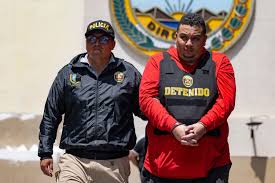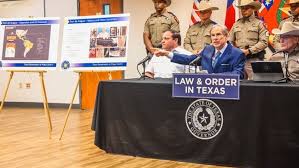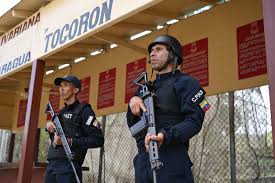
In a troubling incident that highlights the growing presence of organized crime in the United States, a recent home invasion in Dallas has brought attention to the Venezuelan gang Tren de Aragua. This gang, alongside its rival Anti-Tren, poses a significant threat, particularly as they begin to establish roots in North Texas.

On September 21, a woman was violently attacked in her home in Bluffview, near Dallas Love Field, when four armed men forced their way in and stole approximately $75,000 worth of valuables. The suspects have been linked to the Anti-Tren gang, a faction reportedly composed of former Tren de Aragua members involved in various criminal activities, including sex trafficking.
Law enforcement records indicate that one of the suspects, Manuel Hernandez Hernandez, has a history of crossing the U.S. border illegally and has multiple prior arrests. His claims about the gang’s activities raise alarm about the potential for increased gang violence and trafficking in the region.

As authorities work to understand the full extent of these gangs’ operations in the U.S., it is crucial for local law enforcement to collaborate closely with federal agencies. The FBI has indicated that it is actively investigating gang-related violence through partnerships with local law enforcement, yet the urgency of the situation calls for even greater vigilance. A recent federal audit revealed weaknesses in the Department of Homeland Security’s vetting processes for asylum seekers, allowing potential gang members to slip through the cracks.
Bianca Davis, CEO of a Dallas nonprofit that aids trafficking victims, underscores the need for awareness, noting that while most of the organization’s clients are locals, the number of immigrant victims is expected to rise as communities grow and become more established. The issue of sex trafficking is complex and often transcends geographic boundaries, further complicating law enforcement efforts.

As the situation unfolds, it is essential to strike a balance between acknowledging the threat posed by gangs like Tren de Aragua while avoiding the scapegoating of all Venezuelan immigrants. The majority are hardworking individuals seeking safety and opportunity, and it is imperative to differentiate between the actions of a criminal minority and the broader immigrant community.
Dallas and its surrounding areas must remain proactive, sharing intelligence and resources among various law enforcement agencies to combat the rise of these international criminal groups effectively. The community’s safety depends on a coordinated effort to confront this emerging threat with both vigilance and compassion.
Follow us on our socials @empfricfmradio for more updates.
